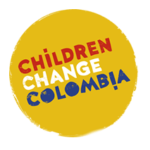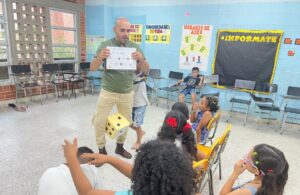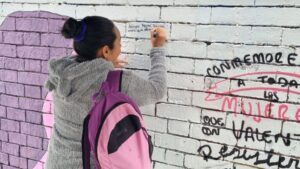Have you noticed how much time you spend in front of a screen every day? Maybe when you wake up you check your messages, then watch a video, play a game for a while, look at memes, do homework, or talk to your friends. And just like that, without realizing it, the day slips away amidst clicks, notifications, and likes.
The internet has become an extension of our lives. We study, play, learn, and even express our feelings there. But, although it seems like a free and fun world,It is also a space where you need to know how to take care of yourself.. Because, just as there are traffic lights, rules, and places you shouldn’t enter alone on the street, the digital world also has invisible borders that protect your well-being.
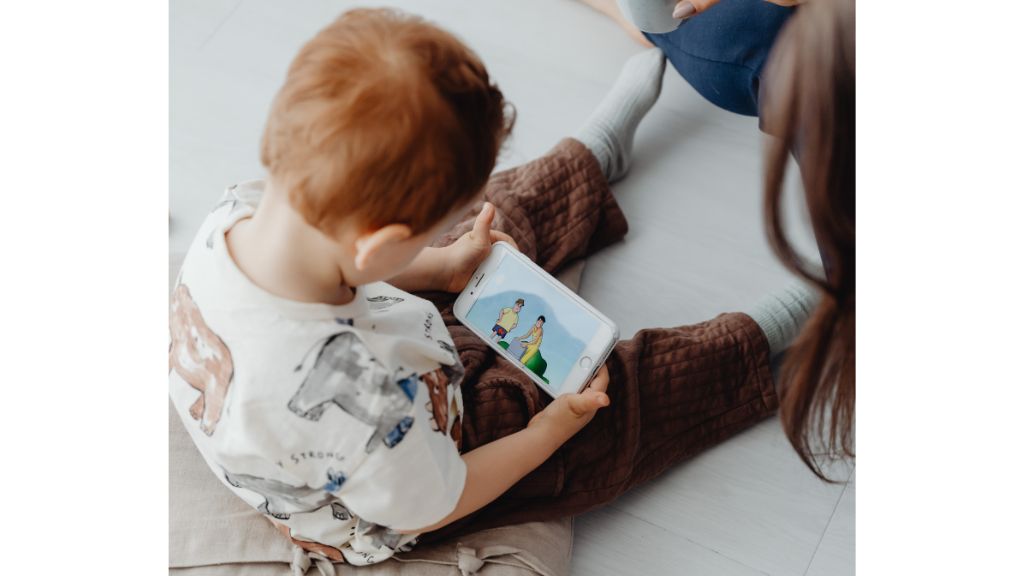
The internet: a giant city where you also live
Imagine that the internet is a large city without borders.
It has parks (like TikTok or Instagram), shopping malls (online stores), libraries (Google or Wikipedia) and avenues full of lights (YouTube, Twitch or Netflix).
But there are also dark places, where people can lie, deceive, or do harm.
In this city, Your digital identity is like your home. Would you leave the door open for anyone to come in? The same thing happens when you post without thinking, share your personal data, or accept strangers on your social networks. Every photo, comment, or video you upload leaves a trace, and even if you think you can erase it,It always leaves a trace.
Taking care of your digital footprint isn’t about being afraid, it’s about having power. It’s knowing how to say: “I share this because it represents me,” or “I don’t upload this because it could harm me or put others at risk.”
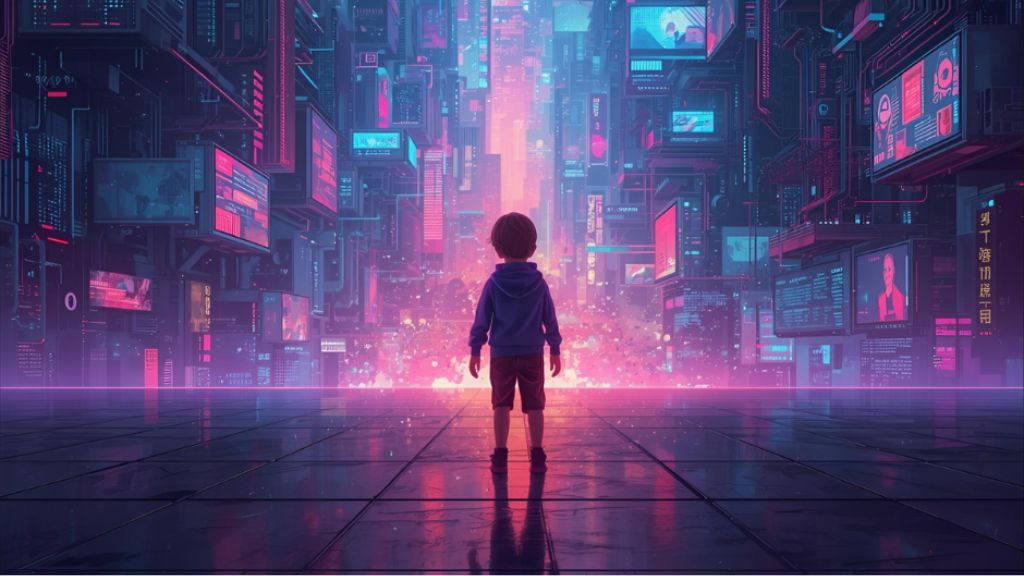
When the game becomes dangerous
Online video games are one of the favorite spaces for many girls, boys, and young people. There you can be whoever you want: a hero, a professional gamer, a builder, an explorer. But sometimes, behind a friendly avatar, there may be a person with bad intentions.
There are adults who try to gain the trust of minors to obtain photos, information, or even arrange to meet them in person. That’s called…restroom and it is a serious form of abuse. It starts with seemingly innocent conversations —“let’s play together”, “I’ll send you coins”, “don’t tell anyone”—, but it ends up taking away your freedom, peace of mind and self-esteem.
If someone in a game or on social media ever asks you to do things that make you uncomfortable, or makes you feel afraid,Don’t be silent. Talking is your best defense. Tell a trusted adult, your teacher, or someone you know will listen without judgment. Asking for help is not weakness, it’s courage.
Your data, your treasure
Every time you post something, your information travels through places you can’t see.
When you put your full name, the name of your school, or your location, you are leaving a trace that others can follow. There are people who use that information to scam, manipulate, or even harass.
That’s why, Never share your private information, not even with your school friends.
Your password is your personal key. Don’t lend it out, don’t write it down on slips of paper, and change it from time to time. And remember: when an app asks you to accept “terms and conditions,” what it’s really doing is asking for permission to use your data. If you can, read them with your parents or teachers.
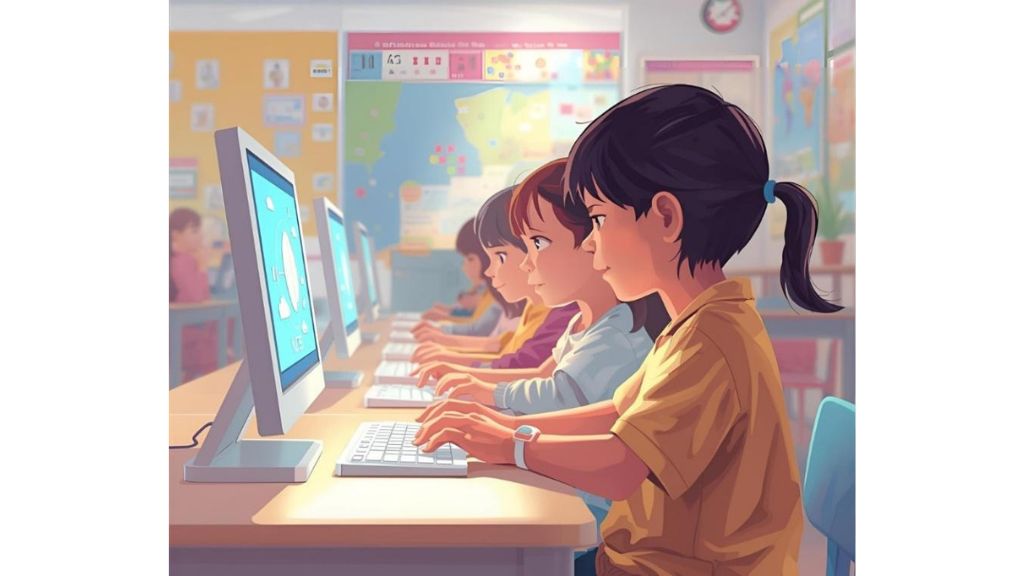
Social media and the power of a post
Uploading a photo, commenting, or making a video seems simple, but every post can have consequences. There are those who suffer cyberbullying because of an image, a meme, or a comment that got out of control.
Sometimes it starts as a joke between friends, but it turns into something that hurts.
If you see someone being humiliated or attacked online, Don’t stay silent. Defending others is also a way of protecting yourself. The internet doesn’t need more hate; it needs empathy, respect, and people who use their voice for good.
- Before uploading anything, ask yourself:
Am I showing something I’d like everyone to see? - Am I respecting others?
- Could this hurt anyone?
Publishing is like throwing a stone into water: the ripples always spread.
Think before you share
Have you ever shared a news story without knowing if it was true? On the internet, information travels very fast, and often what we see is not true. Someone can invent a story, edit an image, or manipulate a video to deceive or confuse.
That’s why, Being critical also means being cybersecure. Check before sharing, look for reliable sources, compare what you read. Being curious and responsible makes you part of a generation that not only uses the internet… but also think internet.
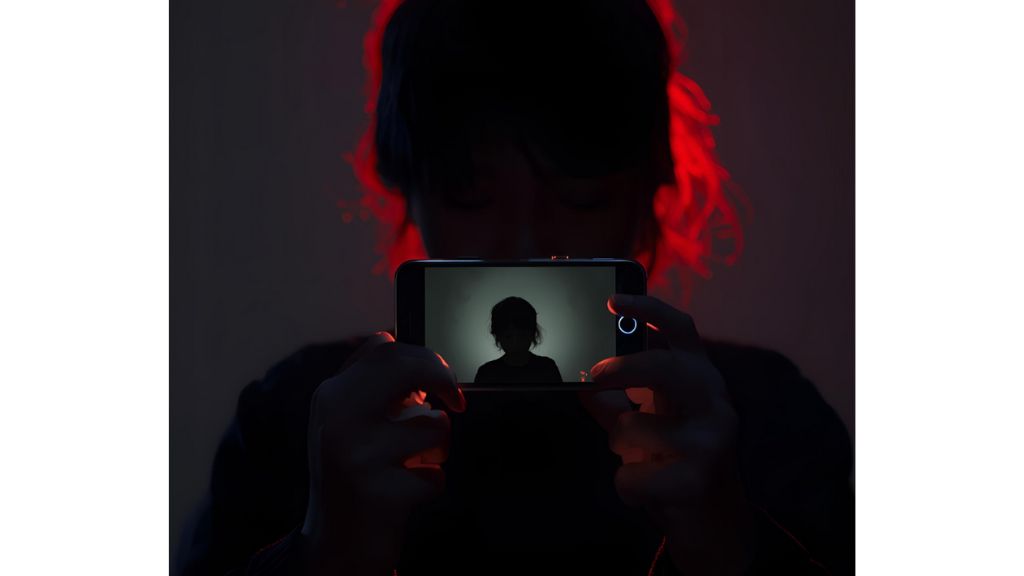
When the internet hurts
There are forms of digital violence that directly affect children and adolescents worldwide. Some people create or share images where minors are sexually exploited. That’s called Child Sexual Abuse Material (CSAM)And it’s a crime. Other times, children are blackmailed into sending intimate photos or are threatened with having them published. None of those situations are the fault of the minor. Never.
If you know someone going through this or if it happens to you, seek help immediately. In Colombia there are lines like141 of the ICBFwhere you can report and receive guidance. Your life, your story, and your voice are worth more than any photo or conversation.
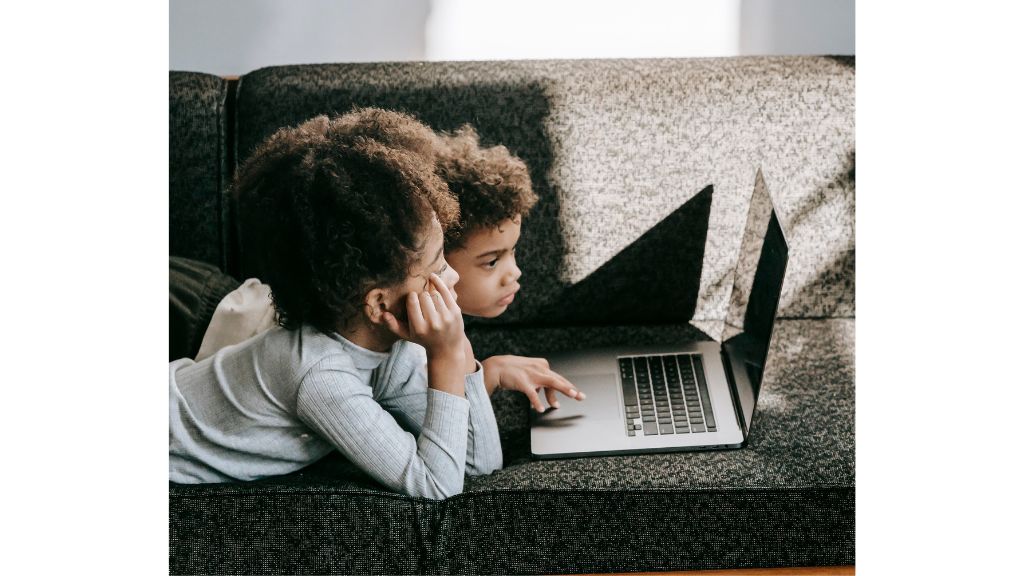
What you can do starting today
Being part of the digital generation also means having digital responsibility.
Here are some ideas that might help:
- Use your networks to build, not to destroy.
- Report violent, abusive, or false content.
- If something makes you uncomfortable, walk away and talk about it.
- Protect your passwords and your data.
- Don’t compare yourself to what you see on social media: real life has no filters.
- Don’t believe everything you see, but don’t ignore what you don’t understand either. Ask questions.
- And, above all:Take care of your emotional well-being.If the internet makes you feel bad, turn it off for a while.
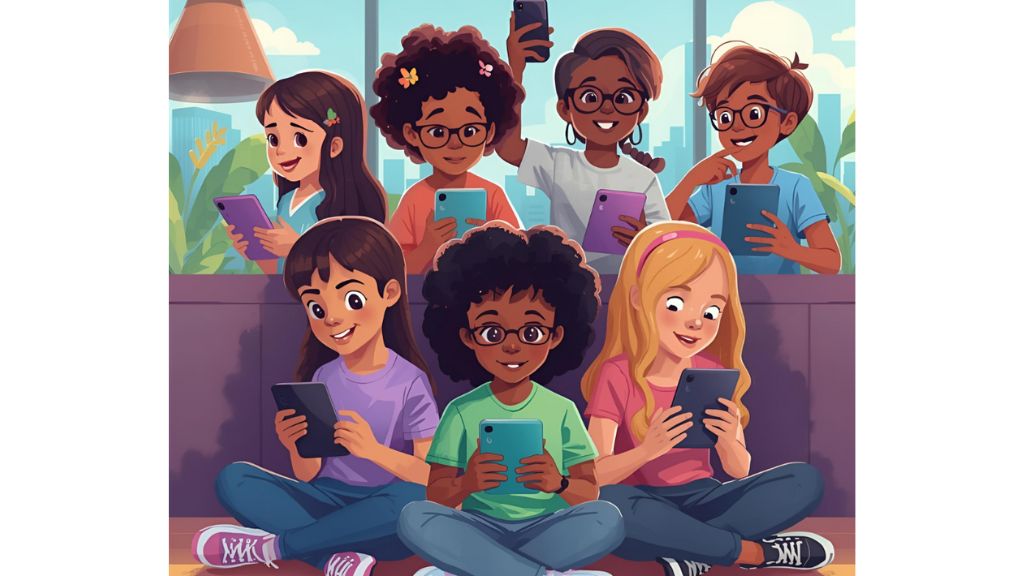
Technology can also be a bridge
The internet is not only dangerous. It is also a place full of opportunities: There you can learn to program, create art, study languages, advocate for social causes, or connect with other cultures. You can use it to build your voice, not to lose it.
The key is balance: using technology as a tool, not as a refuge. Remember that the most important thingIt’s not about how many followers you have, but how much value you share with the world..
In short: you decide how to navigate.
Nobody can take better care of your digital security than you. Your body, your history, and your privacy belong to you. Every click is a decision, and every decision can bring you closer to the freest, most responsible, and most confident version of yourself.
So the next time you turn on your phone, look at a screen, or open a social network, remember this: You’re not alone on the internet; not everything that glitters is safe. And not everyone who smiles behind a screen is telling the truth.
Your best shield will always beto know, to think, and to act carefully. Because the internet is not the enemy… It is a world that needs brave, empathetic, and conscious navigators.
Written by: Juan Pablo Manjarres Varón – Teacher, Law student, and Certified Teaching Professional. Columnist and volunteer at Children Change Colombia, committed to the rights of children and adolescents and to strengthening education.
This blog post is a guest contribution. The views, thoughts, and opinions expressed in this article are those of the author and do not necessarily reflect the official position or policies of Children Change Colombia.
